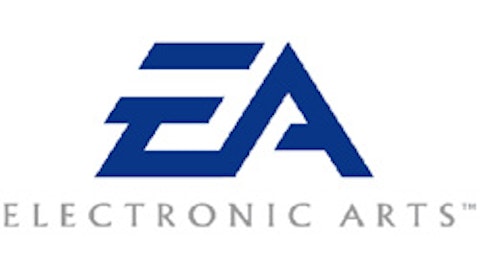Meanwhile, The Walt Disney Company (NYSE:DIS) has seven more movies slated for release between now and the end of the year, but it also has several TV stations, a theme park empire, a video game studio, and a rather massive merchandising arm. Other major studios are similarly diversified. It would take a truly unprecedented streak of blockbuster flops to come close to sinking the blockbuster system, and studios are developing these films with the help of all the tools they can muster, including predictive data analytics. There is far too much invested in the current system’s infrastructure for it to simply implode in a single season.

George Lucas. Source: Joi Ito via Flickr.
Lucas: The blockbuster implosion will turn movies into a Broadway experience.
Lucas said:
You’re going to end up with fewer theaters, bigger theaters with a lot of nice things. Going to the movies will cost $50 or $100 or $150, like what Broadway costs today, or a football game. It’ll be an expensive thing. … [Movies] will sit in the theaters for a year, like a Broadway show does. That will be called the “movie” business.
Here’s a quick comparison between Broadway and the movies:
| 2011 Total Gross | 2012 Attendance | Total Theaters/Screens | |
|---|---|---|---|
| Broadway | $1.16 billion | 12.16 million | 40 |
| Movies | $34.7 billion | 1.36 billion* | 130,000 |
Sources: Broadway League, Motion Picture Association of America. *U.S. attendance only. Other statistics in Movies category are worldwide figures.
And here’s my answer to George Lucas: No. Just no.
You’d think the guy who pioneered the merchandising add-on for blockbusters would understand that successful merchandising strategies depend on having a lot of average people go see your movie. It will take an absolute sea change sweeping through the entire film industry to make the studios restructure their distribution strategies to cater exclusively to rich people.
Lucas: Everything that’s not a blockbuster will be streamed on demand.
Lucas said:
Everything else [not a blockbuster] is going to look more like cable television on TiVo Inc. (NASDAQ:TIVO). It’s not going to have cable or broadcast, it’s going to be the Internet television.
This isn’t so much prescient as it is an observation of reality. Netflix, Inc. (NASDAQ:NFLX) has already distributed five original programs, including the critically acclaimed House of Cards and Arrested Development, as well as three special one-off programs and two original films. Four more series are slated for release by the end of next year.
House of Cards alone cost an estimated $100 million for two 13-episode seasons. Amazon.com, Inc. (NASDAQ:AMZN) will produce five original series for its Prime subscribers through its in-house studio, which has received over 15,000 movie script submissions and 3,600 series pilots since launching in 2010. The company is also developing 24 movies. Why exempt blockbusters? If a series can cost Netflix, Inc. (NASDAQ:NFLX) $100 million, it stands to reason that the company might eventually produce a movie at that cost or higher as well.
Lucas: The biggest video game of the future will be like Titanic.
Lucas said :
The big game of the next five years will be a game where you empathize very strongly with the characters and it’s aimed at women and girls. They like empathetic games. That will be a huge hit and as a result that will be the Titanic of the game industry, where suddenly you’ve done an actual love story or something and everybody will be like “Where did that come from?” Because you’ve got actual relationships instead of shooting people.





